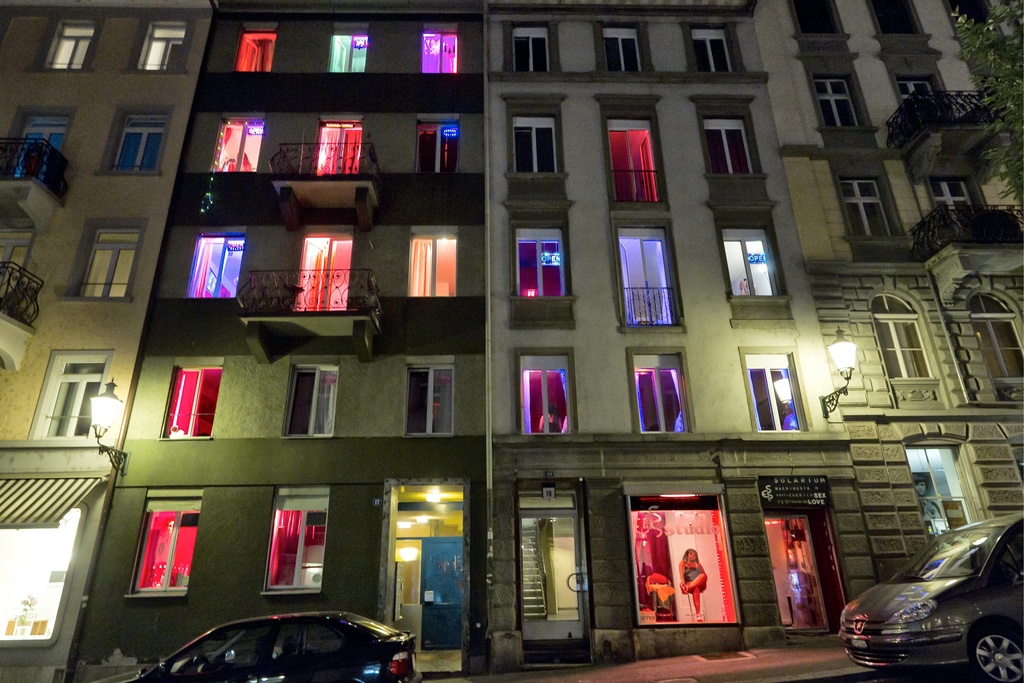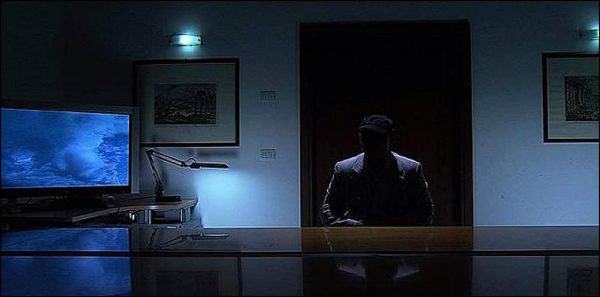Tackling the mafia through the money trail

The most effective way to defeat the mafia is to deprive criminals of capital, a goal which will require changes in the law, says Federal Prosecutor Pierluigi Pasi.
In last year’s annual report, the Swiss Federal Police confirmed once again that mafia were infiltrating Switzerland, in particular in the border cantons. Prosecutor Pasi is based in one such region – Italian speaking Ticino.
In these regions, criminal elements are attempting to set up money laundering structures for income stemming from illegal activities. The fronts range from the simple purchase of businesses to complex financial operations.
The figures at stake are massive. In Italy, for example, between spring 2008 and autumn 2010, the authorities confiscated assets worth €18 billion (SFr20.9 billion). To put the impact in context, the turnover of the Calabrian-based ‘Ndrangheta crime syndicate alone was estimated to be €36 billion for the year 2008.
As the Ticino representative of the Federal Prosecutor’s Office, Pasi is very familiar with the situation.
swissinfo.ch: Is it correct to say that Switzerland constitutes a sort of logistical base for numerous mafia organisations?
Pierluigi Pasi: In a certain way, yes. Switzerland attracts capital criminals, as any state would with a strong financial centre, where there are profitable investment opportunities in diverse sectors and activities which can be used as a legal front. It has always been so.
It is therefore natural that, due to its close proximity to Italy and compared with other places, our country represents a privileged platform for criminal organisations based in our southern neighbour.
What is new, although it’s not that new, it the more marked physical presence of people close to mafia organisations, probably due to the pressure exercised by the police and judiciary in Italy.
In this context, Switzerland, with its border cantons and large urban centres, can effectively be used as a refuge. But it is equally true that in certain cases these people have the tendency to reorganise themselves here or even to act as contacts with Italian criminal organisations.
swissinfo.ch: Are Switzerland’s legal instruments suited to fighting against money laundering and tackling mafia organisations at the economic level?
P.P.: On an internal level certainly. But mafia organisations have had an international and transnational dimension for a long time. Therefore the response of each state in the international community to this criminal phenomenon must be of the same dimension.
To combat the mafia, you have to remove their sources of funding wherever they may be. In my view, to participate actively in this international battle, we have to strengthen the instruments which make it possible to access funds which have taken refuge on our territory.
For example the legal provision in the penal code for seizing assets could be adapted to make it closer to the measures contained in drugs law, which allows the authorities to seize the proceeds of drug trafficking earned abroad and transferred to Switzerland.
swissinfo.ch: The Federal Police insist on the necessary collaboration between the different national and international actors to be able to combat crime effectively. Can you give an example of successful collaboration?
P.P.: There are many examples. The 2010 report makes reference to cases in which collaboration led to arrest in Switzerland and following extradition to Italy, people were convicted of membership of mafia organisations.
We also carry out a more discreet but not less important collaboration: I’m thinking here of all the judicial assistance that we carry out at the request of the Italian authorities and which facilitates the gathering of essential information. These lead to significant results.
swissinfo.ch: Where can things be improved?
P.P.: To overcome organised crime, the gathering, analysis and exchange of information between all the partners – national and international – is vital. However in this domain there is room for improvement. I particularly agree with those who say that the collaboration at police level should be improved; perhaps in revising the relevant treaty with Italy.
swissinfo.ch: The property sector, restaurants, big events like Expo 2015 in Milan: how is it possible to combat mafia infiltration into these economic domains?
P.P. Clearly we need more than just relying on the legal preventative and repressive norms. Here as well, we must first and foremost increase the awareness among economic actors of the fact that the risk is well and truly there.
Everyone should ask themselves questions when they presented with access to large sums of money coupled with a reticence to speak about its source. Suspicions should be raised when people seem surprisingly satisfied with meager profit margins or are happy to invest in high risk activities or businesses.
For big events and big building projects, we need to be even more careful: maybe politicians and the legal establishment could take a closer look at what is done abroad, particularly in Italy. But for the moment, I see no sign that this is becoming important.
swissinfo.ch: The 2010 report shows that criminal organisations increasingly have access to specialists in finance and information technology. Are the police managing to keep up?
P.P.: It is certainly true that criminal networks are specialising and have access to complex structures. Although it is still the case, as we find in our investigations, that ordinary crime and organised crime – at least in an initial phase – store and traffic liquid cash.
The use of information technology, electronic communications and the internet plays a primary role, notably in communication. It follows that we require access to investigation techniques and analysis which are just as specialised.
Keeping up is difficult but obviously necessary. The Federal Police are exerting great efforts in this direction, but there is only so much they can achieve with limited resources.
Mafia clans in Switzerland do not, for example, exert complete control over a particular area as is the case in regions around Naples and Sicily, from where the clans originate.
Nonetheless, there are indications that the organisations have made agreements among themselves regarding opportunities in particular areas of the country. Switzerland’s small size and multi-language environment ensures that mafia clans essentially operate around the Italian border regions.
The code of silence is applied as severely in Switzerland as it is in other countries. Witnesses are therefore rare, making it more difficult to prove criminal cases against the mafia. In addition, the mafia family structures are difficult for outsiders to penetrate.
Italian mafia organisations form relationships with specialists in the financial and banking sectors for their illegal activities in order to reinforce their presence in Switzerland.
Source: Federal Police Office, 2010
In Switzerland, a large majority of criminal prosecutions are undertaken by cantonal judicial authorities. Crimes falling under federal jurisdiction are investigated and prosecuted by the Federal Prosecutor’s Office.
Such crimes include terrorism, counterfeit money, espionage, corruption, money laundering, and international organised crime.
Crimes committed by federal employees in the execution of their duties also come under the domain of the federal prosecutor.
The Federal Prosecutor’s Office was created in 1848 at the time of the birth of the Swiss confederation.
It comprises 150 employees, and is based in Bern with offices in Lugano, Lausanne and Zurich.
Federal criminal cases are tried before the Federal Criminal Court in Bellinzona, and appeals are heard by the Federal Court in Lausanne.
(Translated by Clare O’Dea)

In compliance with the JTI standards
More: SWI swissinfo.ch certified by the Journalism Trust Initiative













You can find an overview of ongoing debates with our journalists here . Please join us!
If you want to start a conversation about a topic raised in this article or want to report factual errors, email us at english@swissinfo.ch.